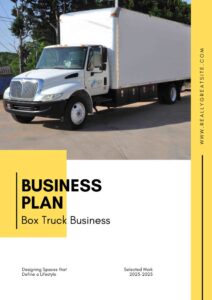Written by Elma Steven | Updated on December, 2024

Securing a loan to start or grow a business can be a daunting process. For many small business owners, loans guaranteed by the Small Business Administration (SBA) are an attractive option due to their favorable terms, lower interest rates, and longer repayment periods. However, a common question arises: Is collateral required for an SBA loan? The answer depends on the loan type, amount, and individual lender requirements.
Understanding SBA Loans
The SBA does not directly lend money to businesses. Instead, it partners with approved lenders such as banks and credit unions to offer loans with an SBA guarantee. This guarantee minimizes the lender’s risk, encouraging them to provide financing to small businesses that might not qualify for conventional loans.
Collateral Requirements by Loan Type
- SBA 7(a) Loan The SBA 7(a) loan program is the most versatile and popular SBA loan. It’s commonly used for working capital, purchasing equipment, or refinancing debt. For loans up to $25,000, collateral is not typically required. However, for loans exceeding $25,000, lenders generally require some form of collateral, such as real estate, equipment, or inventory. The SBA mandates that lenders take all available collateral up to the loan amount but does not automatically disqualify borrowers if there is insufficient collateral.
- SBA 504 Loan SBA 504 loans are designed for purchasing fixed assets like real estate or machinery. These loans are collateralized by the asset being financed. For instance, if you’re using the loan to purchase commercial property, the property itself serves as collateral. Additional personal or business assets may also be required.
- SBA Microloan Microloans are smaller loans (up to $50,000) typically used for working capital or purchasing supplies and inventory. Collateral is often required, but the requirements are less stringent compared to other SBA loan types. Lenders may accept alternative forms of collateral, such as personal assets or business equipment.
- SBA Disaster Loan Disaster loans help businesses recover from natural disasters or economic disruptions. Collateral is required for loans exceeding $25,000, and real estate is often used as the primary collateral. However, the SBA works with borrowers who lack sufficient collateral to make the process feasible.
Personal Guarantees
In addition to collateral, most SBA loans require personal guarantees from owners holding a 20% or greater stake in the business. A personal guarantee means that the individual is personally liable for the loan if the business defaults. This adds an additional layer of security for the lender.
What If You Lack Collateral?
Lacking sufficient collateral doesn’t necessarily disqualify you from obtaining an SBA loan. The SBA’s primary concern is the viability of your business and your ability to repay the loan. If your business plan, financial projections, and creditworthiness are strong, lenders may still approve the loan despite limited collateral.
Tips for Securing an SBA Loan
- Prepare a Comprehensive Business Plan: Highlight your business’s potential, including market analysis, financial projections, and growth strategy.
- Improve Your Creditworthiness: A strong credit score can boost your chances of approval, even if your collateral is limited.
- Consider Alternative Collateral: If traditional collateral like real estate isn’t available, explore alternative options such as equipment, accounts receivable, or personal assets.
- Work with an SBA-Approved Lender: Choose a lender experienced with SBA loans to guide you through the process and provide clarity on collateral requirements.
Conclusion
While collateral is often required for SBA loans, it’s not always a dealbreaker if you lack sufficient assets. The SBA’s mission is to support small businesses, and its programs are designed to accommodate various financial situations. By understanding the specific requirements of different SBA loan programs and preparing a strong loan application, you can improve your chances of securing the funding needed to achieve your business goals.

